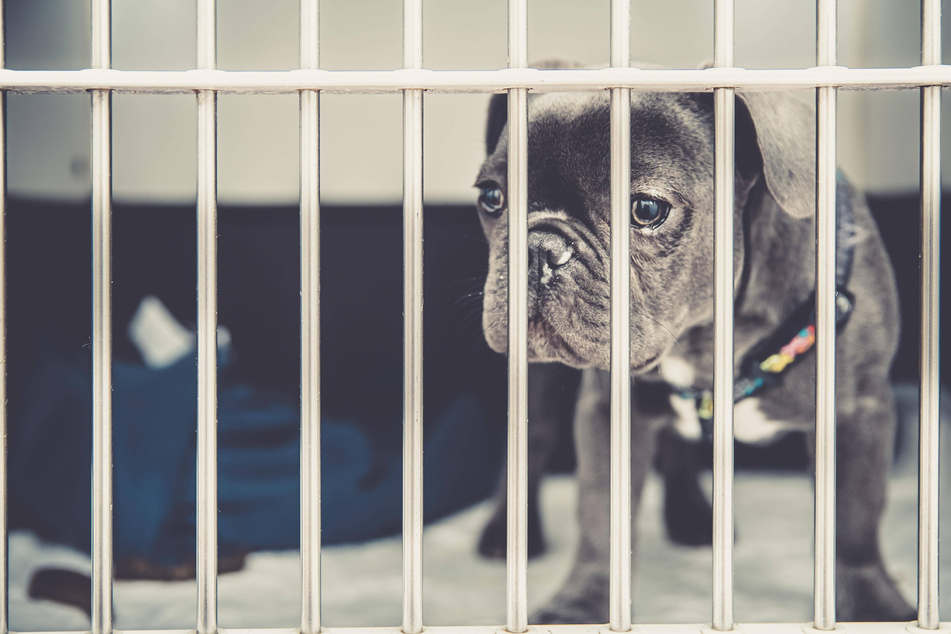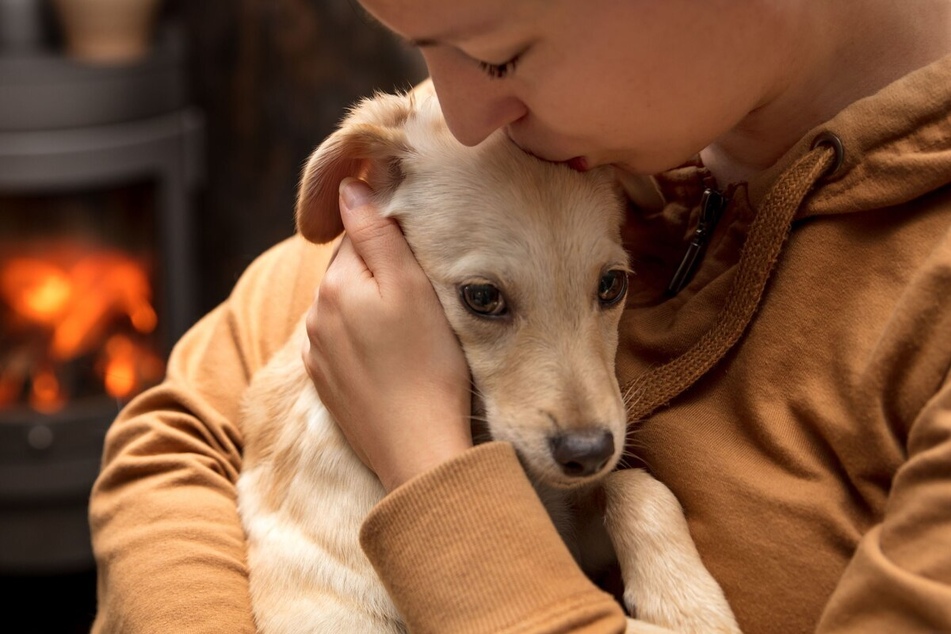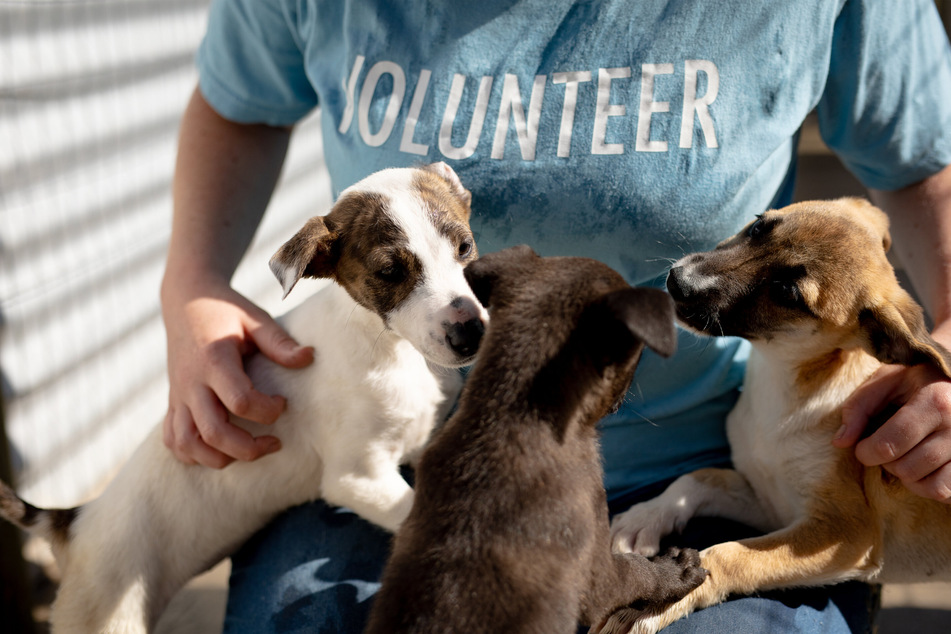Adopting a rescue dog from a shelter: Cost, questions, and advice
Rescuing a dog from a shelter gives your pooch a new lease on life and a chance at finding a wonderful family. That doesn't mean the experience won't come with its own challenges, though, so here's what you should know before you adopt.

There are few life decisions that make more of an impact than adopting a pet.
While perhaps not quite at the same level as the birth of a child, rescuing a dog from a shelter can be an even more rewarding experience than simple adoption.
After all, you are giving your beloved pooch another chance at life – and another chance at love and happiness – even if it can be difficult at times.
In this dog guide, TAG24 is here for all prospective dog shelter adopters out there. What should you think about before getting a rescue dog from a shelter, how much can you expect it to cost, and is it safe for your kids?
Should I adopt a rescue dog?
When you adopt a dog, you are taking on a great deal of responsibility, and that responsibility will be a constant in your life throughout the course of your pet's life. The social contract you are taking up with this animal becomes even more pronounced when it is a rescue dog, as you are saving it from a sad fate.
It's vitally important to understand that when you adopt a dog, you need to be healthy and capable of looking after it (unless it is a therapy dog, or one trained to look after you). That means plenty of money for food, health care (which is especially important for shelter dogs), toys, and comfort.
You should absolutely adopt a rescue dog, but only if you are certain that you have the time to dedicate enough attention to it. Dogs from shelters are even harder work than those that come from the pet shop, but the experience can also be more rewarding.
How to adopt a puppy from a shelter
No matter whether you're adopting a dog from a shelter or directly from a breeder, you're going to need patience. Rescue dogs will often not be trained, and some might not even be used to staying inside. Some will be former strays, and others will come from abusive households. As a result, the adoption process can be extremely complicated.
Organizations and NGOs like the Humane Society, as well as various local government services, are responsible for the care and adoption processes of shelter animals in the United States. The processes are regulated carefully, to make sure that any rescue animal that gets adopted goes to a healthy and safe household.
Here's the generalized process you will need to follow if you want to adopt a rescue dog from a shelter:
Step 1: Get prepared - There are a few things you will need to do before even starting the process. Firstly, you need to do your homework and figure out whether you have the time, the money, the space, and the lifestyle to accommodate a dog. After this, you need to visit various shelters, meet people and doggos, and start the process.
Step 2: Submit an application for adoption - Most organizations won't just simply hand out doggos to wishful dog owners. You will need to find the dog you want and then apply to become their new human. It may be necessary to provide a bunch of personal information in this application.
Step 3: Do the interview - It is now a pretty standard practice to interview prospective rescue dog owners. This interview is used as a way both to inform you about the life and history of the dog in question, and also for the organization to vet you and make sure you are safe.
Step 4: Pay the costs - If your application is approved and your interview is a success, then it's time to pay the costs and do the paperwork. These costs could simply be the price of adoption, but could also include any necessary vaccinations the dog doesn't have and other expenses.
Step 5: Bring the doggo home - Once this whole process has been completed, it's time to prepare your house or apartment and bring your brand-new pooch home.
Things don't end once you have taken your rescue dog home, as now it's time to prepare them for life with you. It may take some time and they may act out, but with time, most rescue dogs will grow to love and trust their new humans.
The process of bringing a dog home can be slow and tedious, but once you've got a rescue dog, you will never look back. They will love and appreciate you, and you will love and appreciate them too.

Rescue and shelter dogs' adoption costs
Rescue dogs generally cost far less to adopt than if you buy a pooch from a breeder. These prices are not inclusive of the health costs that generally come along with a dog from a shelter. Many of them won't be vaccinated, or will have ongoing health issues that could become expensive.
Generally, dogs from a shelter will cost somewhere between $100 and $300. This number will vary up or down, and is also influenced by factors such as age, health, and breed (though this is to a lesser extent with rescue dogs). On top of that, dogs that have been in the shelter for longer will often cost less, and you also need to take the startup costs into account (toys, food, etc.).
How did adopting a rescue dog get so difficult?
The sad reality of dog adoption is that many people will abuse and neglect their perfect pooch. Some even release them out into the wild, where they become stray, feral, and dangerous. Rescue dogs are often victims of such behavior and, as such, vetting of prospective owners is even more important.
Authorities have made adopting a rescue dog difficult so that dogs will go to better homes overall, which won't continue the process of neglect.
Important questions to ask when adopting a rescue dog
One of the most important things you should do before adopting a dog is ask a bunch of questions. You need to know what to expect when you take your pet home, what kind of experiences it has had, why it's in a shelter, and various other things as well. Your decisions should be informed by these questions.
Here are the most important questions to ask when adopting a rescue dog from a shelter:
- Why is the dog in the shelter?
- Can you give me a break-down of the dog's history?
- Has this dog had multiple homes before this one, and why did the dog's previous owners give it up?
- How is the dog's health? Is it fully vaccinated, and does it have any underlying health issues?
- What is the dog's exact breed, and does that come with any issues?
- Is the dog potty-trained?
- What is the dog like? How is its personality?
- Does the dog get along with children?
- Is the dog particularly anxious, and does it have separation anxiety?
This is not an exhaustive list, and there may be other questions that would be good to ask. Perhaps you should be upfront with the interviewer and ask them to give you a breakdown of everything you need to know.
Adopting a rescue dog: The first seven days

When you bring your rescue dog home, it is likely to be quite tricky at the start. Indeed, the first week is crucial if you want to bond with your new dog and establish new norms and behaviors. You need to show them that their new home is safe and comfortable, and that they can consider you their new family.
There are a few things you should make sure you do within the first seven days of adopting a rescue dog:
Develop a routine: Dogs need a routine, so get them used to doing things at certain times. When do you go to work, when do they eat, when do they get walked, who lives with them, and what else do they need to get used to?
Dog-proof your home: Get rid of the sharp corners and the slippery mats! Dog-proofing is very important to guarantee your pet doesn't hurt itself or get sick. Keep food out of reach, make things relatively safe, and keep an eye out for potential problems.
Get all the supplies you need: Make notes of what your dog doesn't have but needs. Does your pet need more food bowls or a different water bowl? Is it enjoying the food you bought, or do you need to change it up? What about toys, blankets, beds, and other comfort items?
Make it clear where the dog should and shouldn't be: Is it okay for your dog to go into all the rooms in your house? What about the yard or the balcony? Figure out where you are okay with it being, and set those restrictions clearly.
Find a vet and have a first check-up: You should introduce your local vet to your new family member as quickly as possible. Take your dog during the first week and ask the vet to do a full check-up, just in case the shelter has made a mistake. Inform your vet of the dog's history, and get advice on any questions you may have. If your dog hasn't been vaccinated, book a vaccination. If your dog hasn't been fixed, get it neutered or spayed.
Bond with your perfect pooch: There's a choice to be made. Will your dog love you, will you love your dog, and are you right for one another? It's a relationship, so spend the first days trying to bond and spend quality time with your dog. See if your personalities work well together, and make a decision on whether it is worth going forward.
After taking these steps, you should know whether you and your new dog will get along. Around the week mark is when you should make a more solid decision. Will you stick it out, or are you incompatible with this doggo?
Difficulties when adopting a rescue dog
Rescue dogs have sometimes gone through rather traumatic experiences and may not be as friendly as you'd expect upon adoption. They might be suspicious or fearful, or they might just be tired or sick. These feelings can manifest as various different behaviors.
Some difficulties you may have when adopting a rescue dog:
- Your dog may pull and behave badly on the leash
- They may have an unhealthy obsession with humping and mounting
- Barking may be extremely loud, common, and aggressive
- Aggression may be high and quite frightening
- Lack of toilet training
- Extreme dog anxiety
- Difficulty getting on with you and being affectionate or friendly
- Health risks
Important: It can be very difficult adopting a rescue dog, and you need to make sure you're always paying attention to its behaviors and tendencies. Keep it going to the vet regularly at the beginning, and get on top of any problems that could be coming in the future.
Adopting a rescue dog is a worthwhile challenge
It's true that rescue dogs can be troubled by their past – they may have been abused in their previous family, or gone through a traumatic experience – and they are rarely trained properly. This can make them a challenge, but it also makes bonding with them incredibly rewarding, giving you an opportunity to do something truly remarkable.
No dog is the same as another, and each pooch will have its very own personality. Get to know your doggo, learn its habits and concerns, and form a bond of trust – few experiences will ever be better.
Cover photo: IMAGO / Panthermedia





